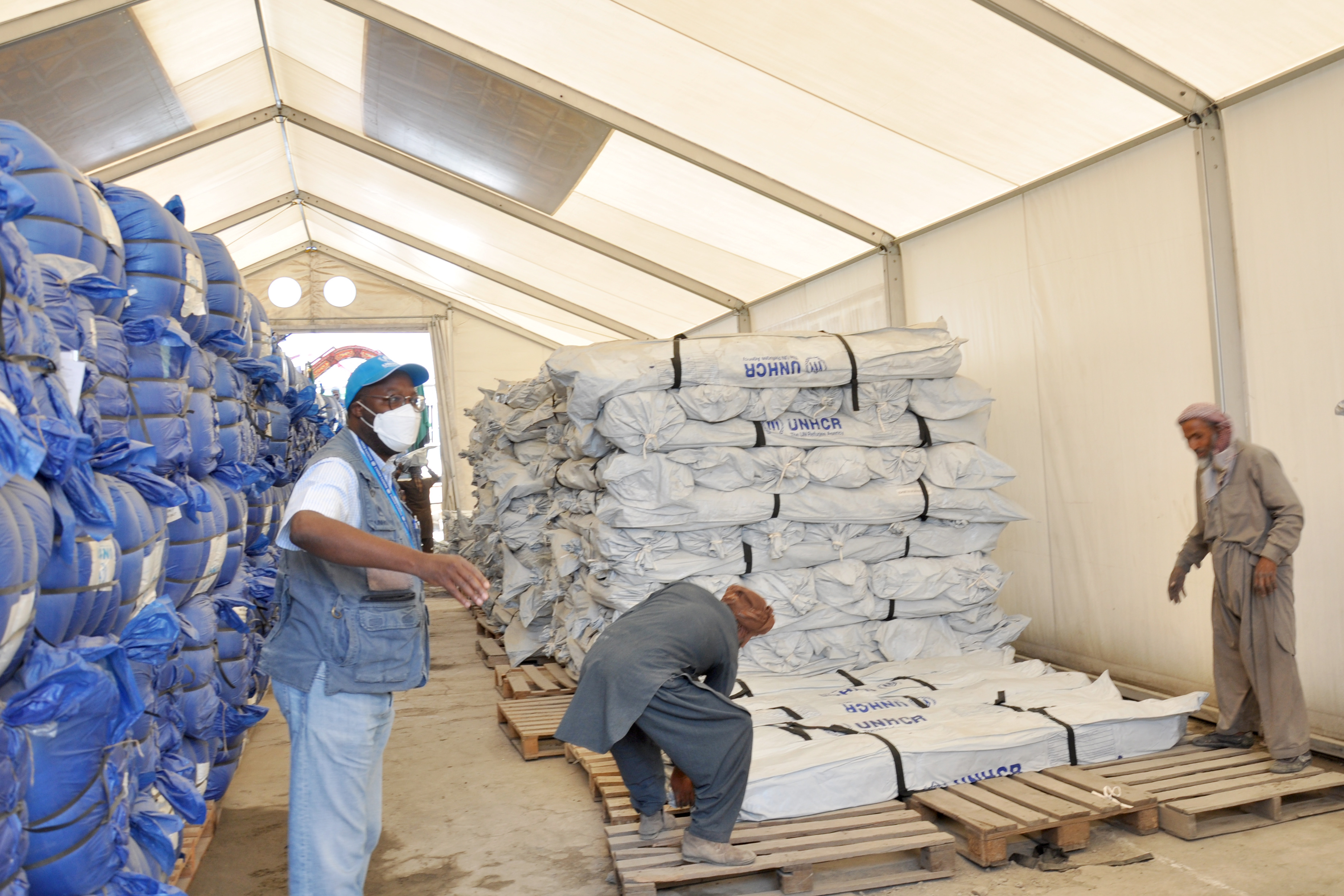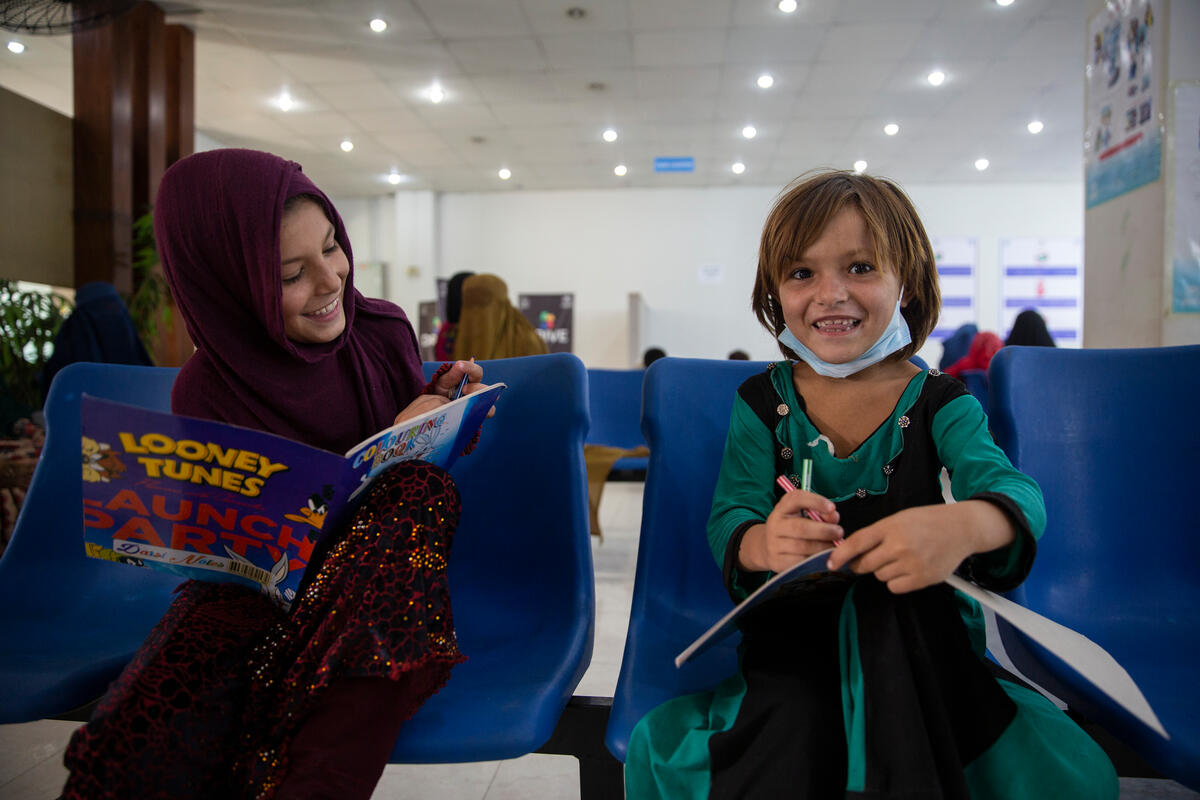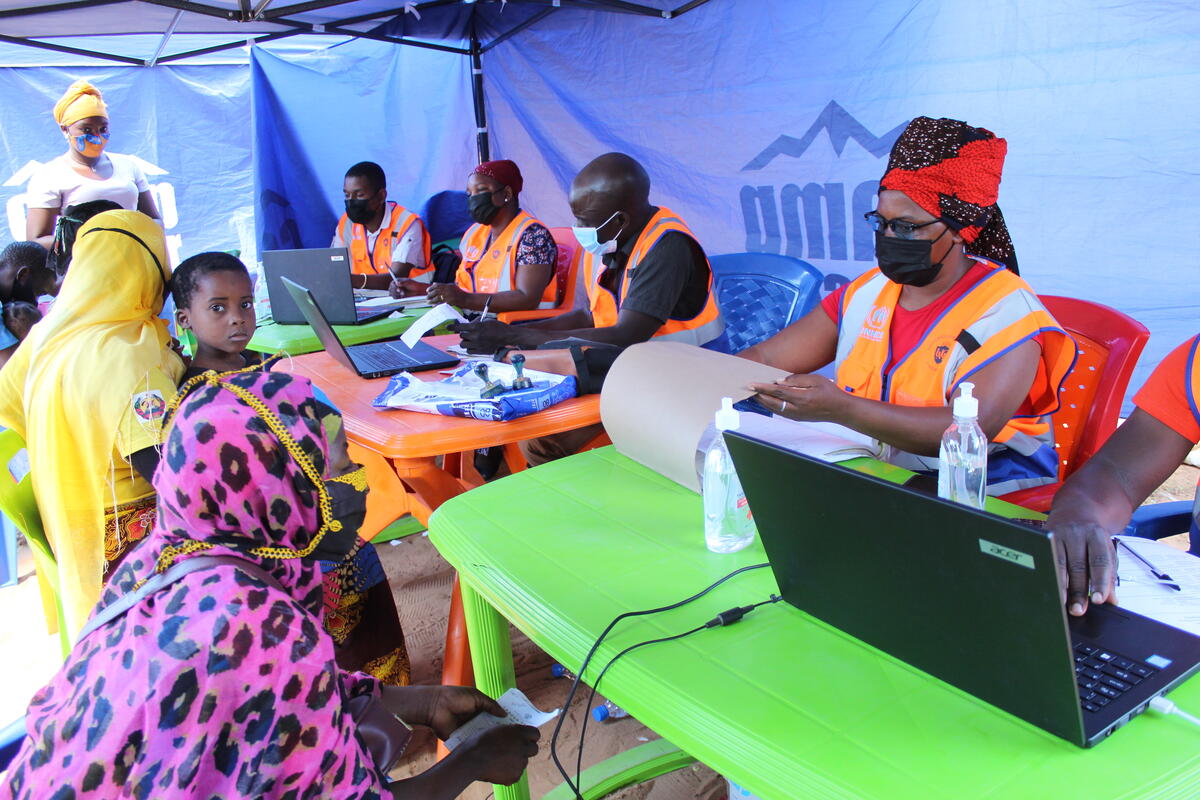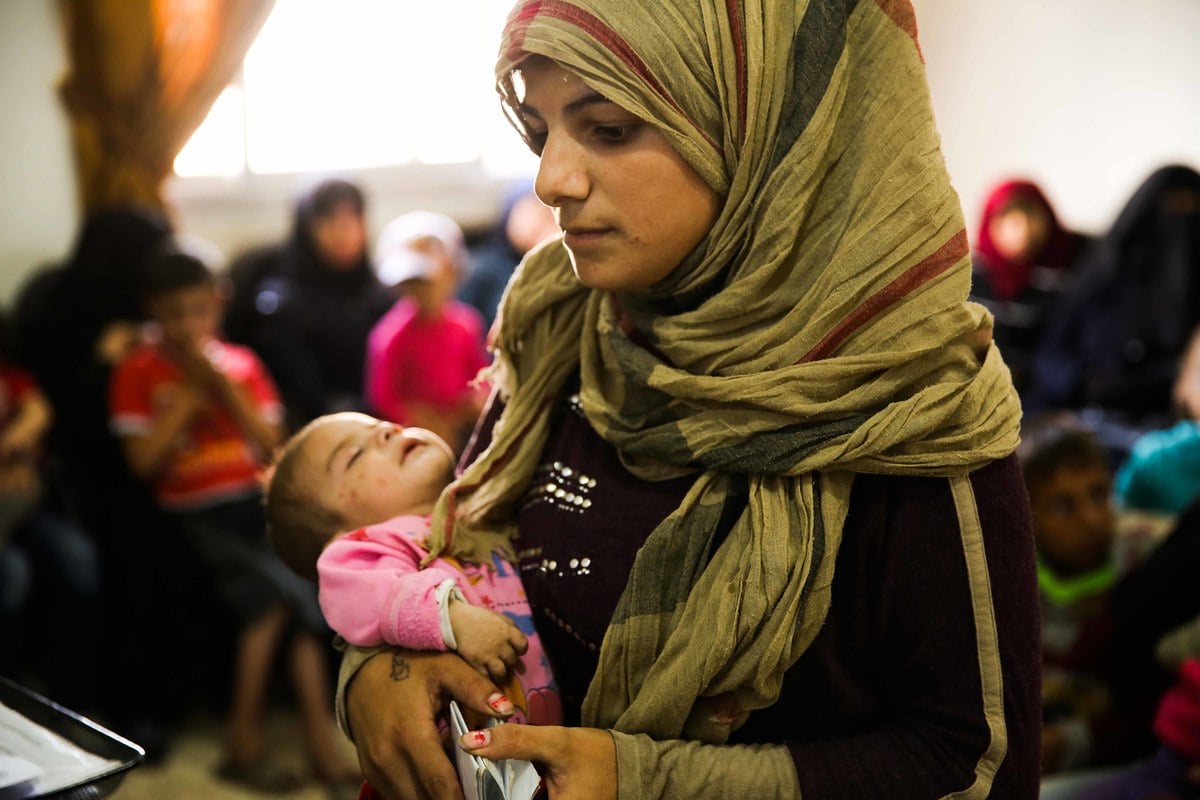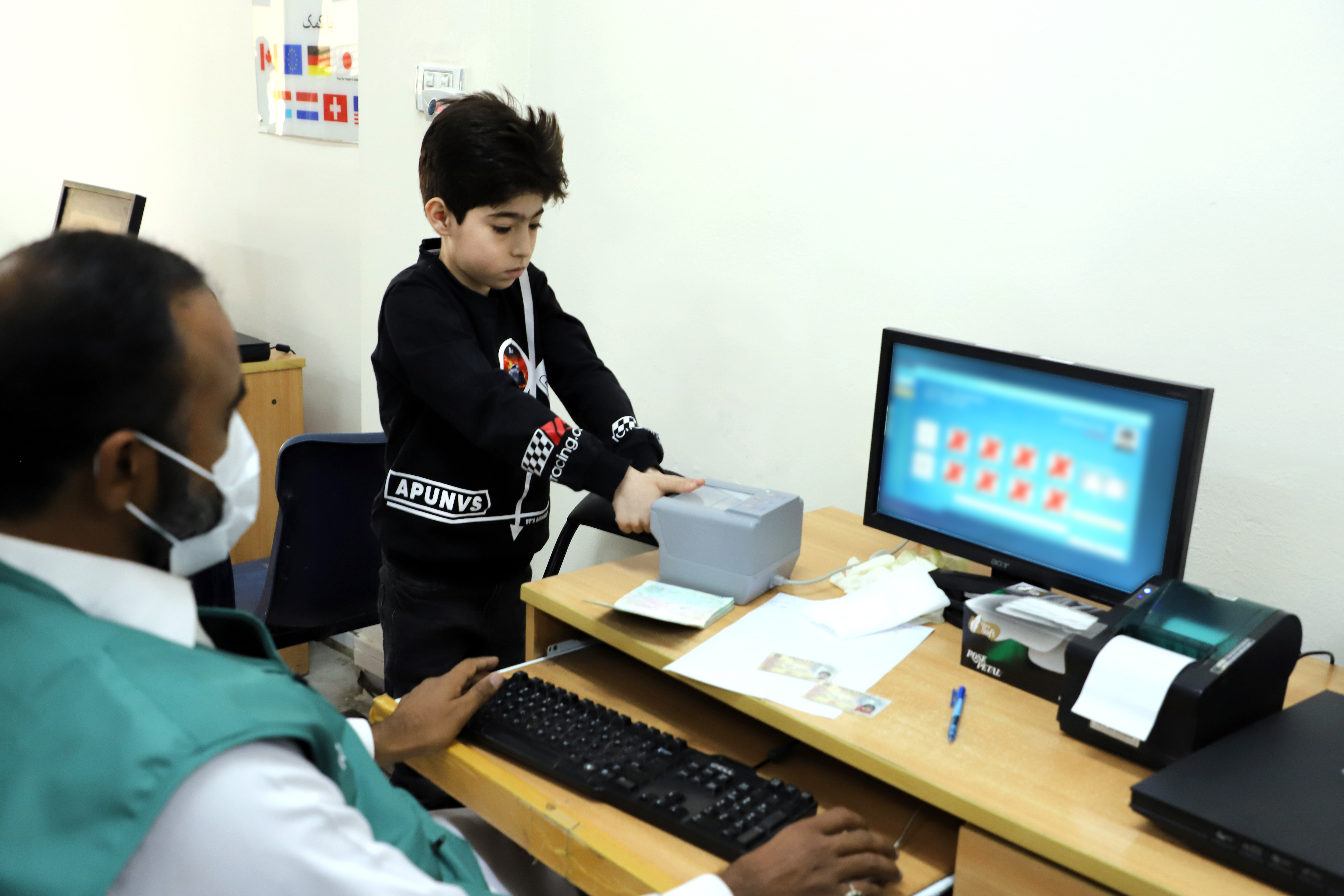Pakistan government registers quake survivors in camps
Pakistan government registers quake survivors in camps

BALAKOT, Pakistan, Jan 18 (UNHCR) - "Come to my tent, come to my tent!" beckons an old man as he waves to Qazi Tariq. Armed with a clipboard and pen, the social worker is surprised by the invitation, but accepts it gratefully as an occupational perk.
Qazi, who works with the Regional Relief Commissioner (RRC) in Pakistan's North-West Frontier Province (NWFP), has come to Balakot's Al Rehmat camp to register people displaced by the October 8 earthquake, gathering information vital for both the provision of aid to survivors now and the reconstruction that will come later.
"The registration is going smoothly and everyone has been very cooperative. They're very excited to talk to us," he says.
Moving from tent to tent, Qazi and his team mates spend about 10 minutes at each stop taking down the names of the heads of household, the family size, place of origin and vulnerabilities - if there are widows, orphans, the elderly, pregnant women or disabled people.
Rafiza, 20, sits outside her tent cradling her newborn baby while holding a registration card that says her family of three comes from Zareda village. She's not sure what the registration is for, and asks a UNHCR staff monitoring the government-led exercise.
"We're taking down your details to get some basic facts on where you come from and what special needs you have," explains the agency's community services officer, Nadira Mehrnwaz.
UNHCR Assistant Representative Indrika Ratwatte elaborates: "Each family that has been registered receives a family card that will be linked to future aid distribution. This registration seeks to obtain a comprehensive profile of the camp populations that can be updated regularly to provide information on population movements to and from camps. The data collected will be instrumental to the relief and reconstruction efforts."
He adds, "The exercise is based on a forward-thinking policy to know more about the population we are helping together with the government. Based on our experience with Afghan refugees in Pakistan, we've learnt that such profiles are crucial in our search for solutions to situations of displacement."
RRC's Qazi, who has been seconded from the Commissionerate for Afghan Refugees in Peshawar, agrees. "The needs are similar - food, shelter, hygiene, health care, family reunification, education," he notes. "The only difference is that the Afghan refugees we usually work with were forced out of their country by war and the cruelty of man, while these earthquake victims are homeless because of an act of God."
As lead agency for camp management, UNHCR is currently providing material and technical assistance to the Pakistan authorities and non-governmental organizations in 26 planned camps and 118 spontaneous camps hosting some 140,000 people in the earthquake-affected areas.
UNHCR is supporting and monitoring the ongoing registration, which has so far covered more than 80 camps in quake-hit NWFP and Pakistan-administered Kashmir. The exercise is expected to be completed this month.
"We are providing the resources and have trained 60 government staff members to register the population in 62 camps in Muzaffarabad and Bagh districts," says Morgan Morris, who heads UNHCR's relief operations in Muzaffarabad.
Raja Abbas, Additional Commissioner of the Camp Management Organisation (CMO), a government institution working in Pakistan-administered Kashmir, adds: "Registration is a useful tool for the government as it will help in planning and working out rehabilitation plans for the registered population living in camps."
The information gathered is being entered into a database to provide a clearer picture of the camp population in order to facilitate aid delivery and the transition to return and early recovery once winter ends.

Return may seem like a distant dream for the thousands of families spending winter in relief camps, but Abdul Rahim can hardly wait. During the registration at Batagram's Maidan camp, he tells UNHCR staff his village in the Allai Valley was completely destroyed in the quake and that he came down with his wife and six children to protect them from the cold.
"Many people in the camp are waiting for spring when we can return and rebuild our homes," he says. "My family has lived in our village for many years. We will return once the harsh winter is over and rebuild our house."
By Babar Baloch in Muzaffarabad, Pakistan
with Vivian Tan in Balakot
and Ozgul Ozcan in Batagram


